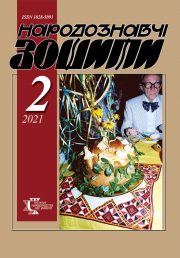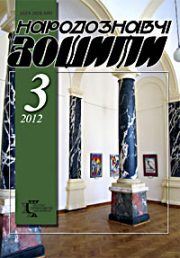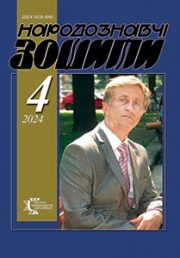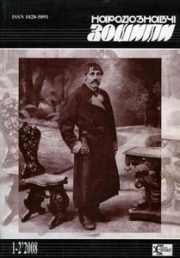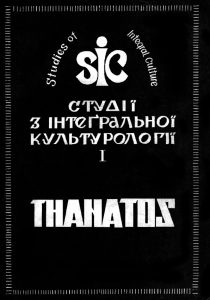1995 year, special issue “Thanatos”
Our authors
On bessarabian and moldavian ukrainians in the studies of historical ethnography
The article has thrown some light upon a sum of scientific findings got during XIX to XXI cc. in historio-ethnographic studies of Bessarabia and Moldavian Ukrainians. In the present paper has been given author’s answer to the problem of lacking progress as for the numerous themes concerning Ukrainians. State and achievements of the research-works in Ukrainians’ material and spiritual culture by the scientists of Moldavia and Ukraine through the years of independence has been exposed.
Read »
The article has thrown some light upon a sum of scientific findings got during XIX to XXI cc. in historio-ethnographic studies of Bessarabia and Moldavian Ukrainians. In the present paper has been given author’s answer to the problem of lacking progress as for the numerous themes concerning Ukrainians. State and achievements of the research-works in Ukrainians’ material and spiritual culture by the scientists of Moldavia and Ukraine through the years of independence has been exposed.
Read »
On field exploration of russian and belarusian ethnologists and etnolinguists in Ukrainian Polisia 1945—1980s
In the study based on a wide range of literary materials have been comprehensively characterised field research in Polisia of Ukraine, performed by Russian and Belarusian ethnologists during 1945—1980s as well as Moscow ethnolinguists and other researchers from ethnologic centres of Russia, Ukraine and Belarus in the course of realization of Ethnolinguistic Atlas of Polisia program. Particular attention has been paid to geography, methods, themes and research results of scientific projects.
Read »
In the study based on a wide range of literary materials have been comprehensively characterised field research in Polisia of Ukraine, performed by Russian and Belarusian ethnologists during 1945—1980s as well as Moscow ethnolinguists and other researchers from ethnologic centres of Russia, Ukraine and Belarus in the course of realization of Ethnolinguistic Atlas of Polisia program. Particular attention has been paid to geography, methods, themes and research results of scientific projects.
Read »
Boikos’ pandemonium: categories of evil deceased
In the article have been presented some research-work on peculiarities of Boikos’ traditional demonological notions as for so-called evil deceased; on the basis of field records and ethnological literary sources quite a number of scum categories have been defined as well as essential habits, modes of behavior and functions of these personages of people’s demonology.
Read »
In the article have been presented some research-work on peculiarities of Boikos’ traditional demonological notions as for so-called evil deceased; on the basis of field records and ethnological literary sources quite a number of scum categories have been defined as well as essential habits, modes of behavior and functions of these personages of people’s demonology.
Read »
Maternity ritualism by volhynians in publications of the second half XIX to the early XXI cc.
In the article have been considered some basic landmarks for fixing and publication of ethnographic materials on the maternity rites of Volhynia with analytical study in ritual elements, their kinds and territories of origin. The article has also raised a problem of gaps in studies of maternity rites of Ukrainian historio-ethnographic Volhynia.
Read »
In the article have been considered some basic landmarks for fixing and publication of ethnographic materials on the maternity rites of Volhynia with analytical study in ritual elements, their kinds and territories of origin. The article has also raised a problem of gaps in studies of maternity rites of Ukrainian historio-ethnographic Volhynia.
Read »
